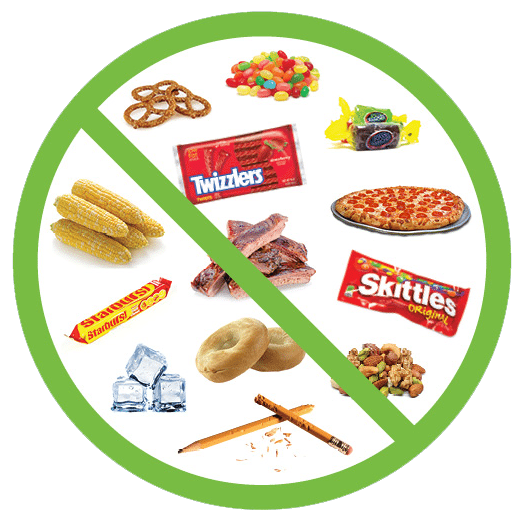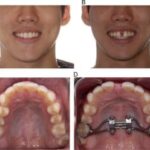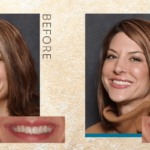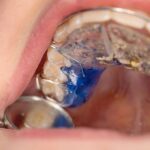While it may be tempting to indulge in crunchy or sticky foods, it’s best to avoid them while wearing a palate expander. Foods like chips, nuts, and caramel can get stuck in the device, making it difficult to clean and potentially causing complications. Instead, opt for softer alternatives such as steamed vegetables, cooked pasta, and tender meats. These options still provide a satisfying texture without posing a risk to your palate expander.
Remember, having a palate expander doesn’t mean you have to sacrifice delicious meals. With a little creativity and knowledge of the right foods to eat, you can still enjoy a wide variety of tasty and nutritious options. So, embrace your palate expander journey and explore the many flavors that are available to you!
List of recommended foods
- Soft fruits: applesauce, mashed bananas, cooked pears
- Steamed vegetables: carrots, broccoli, cauliflower
- Soft grains: oatmeal, quinoa, couscous
- Lean proteins: chicken, fish, tofu
- Soft dairy products: yogurt, cottage cheese, pudding
- Soft breads: white bread, tortillas, pita bread
- Cooked pasta: spaghetti, macaroni, noodles
- Soft cooked eggs: scrambled, boiled, poached
- Smoothies: made with fruits, yogurt, and milk
- Soups: pureed vegetable soups, chicken noodle soup
These foods are easy to chew and won’t put too much pressure on your palate expander. They are also nutritious and provide a balanced diet, ensuring that you get the necessary vitamins, minerals, and protein for muscle development. Remember to stay hydrated by drinking plenty of fluids throughout the day.
By following this list of recommended foods, you can ensure that your palate expander treatment goes smoothly and that you maintain a healthy diet during this time. If you have any specific dietary concerns or restrictions, it’s always best to consult with your orthodontist or dentist for personalized advice.
Foods to eat with a palate expander
1. Soups and broths
Soups and broths are great options because they are easy to eat and provide plenty of nutrients. Opt for smooth and creamy soups like tomato or butternut squash soup. You can also try chicken or vegetable broth.
2. Mashed potatoes
https://upload.wikimedia.org/wikipedia/commons/c/ca/1×1.png
Mashed potatoes are a soft and comforting food that is perfect for eating with a palate expander. They are easy to chew and can be flavored with butter, cheese, or herbs for added taste.
3. Yogurt and pudding
Yogurt and pudding are both creamy and smooth, making them ideal for a palate expander. Choose plain or flavored yogurt, and opt for smooth and creamy pudding options like chocolate or vanilla.
4. Smoothies and milkshakes
Smoothies and milkshakes are excellent choices because they are easy to consume and can be packed with nutrients. You can make them with a variety of fruits, yogurt, milk, and even add protein powder for an extra boost.
5. Soft fruits
Soft fruits like bananas, avocados, and ripe peaches are gentle on the palate and easy to eat. You can eat them as is or blend them into a smoothie for added flavor and nutrition.
6. Cooked vegetables
Cooked vegetables like steamed carrots, broccoli, and cauliflower are soft and easy to chew. You can also mash them or blend them into a puree for a smoother texture.
Remember to avoid hard, sticky, or crunchy foods while you have a palate expander. These can cause discomfort and even damage the expander. Stick to soft and easy-to-chew options to ensure a comfortable and enjoyable eating experience.
Soft and easy-to-chew foods
| Food | Description |
|---|---|
| Yogurt | Smooth and creamy, yogurt is a great source of protein and calcium. Choose plain or flavored varieties without any large chunks or pieces. |
| Mashed Potatoes | Soft and easy to eat, mashed potatoes are a comforting option. Avoid adding any hard or crunchy toppings. |
| Scrambled Eggs | Light and fluffy, scrambled eggs are a good source of protein. Cook them until they are soft and easy to chew. |
| Oatmeal | Warm and soothing, oatmeal is a nutritious breakfast option. Choose instant or quick-cooking oats for a smoother texture. |
| Smoothies | Blend together fruits, yogurt, and milk to create a delicious and easy-to-consume smoothie. Avoid adding any hard or crunchy ingredients. |
| Pureed Soups | Smooth and flavorful, pureed soups are a great way to incorporate vegetables into your diet. Choose soups without any large chunks or pieces. |
| Soft Pasta | Cook pasta until it is al dente, or slightly soft, to make it easier to chew. Avoid any hard or crunchy pasta sauces or toppings. |
| Soft Fruits | Choose fruits that are soft and easy to eat, such as bananas, avocados, and melons. Avoid any hard or fibrous fruits that may be difficult to chew. |
| Applesauce | A smooth and sweet option, applesauce is easy to eat and can be enjoyed on its own or as a topping for other foods. |
| Pudding | A creamy and indulgent treat, pudding is a soft and easy-to-eat dessert option. Choose flavors that you enjoy and avoid any toppings that may be hard or crunchy. |
Remember to take your time when eating and chew your food thoroughly to avoid any discomfort or complications with your palate expander. It’s also important to maintain good oral hygiene by brushing and flossing regularly, even with a palate expander in place.
Nutritious options for a balanced diet

- Lean meats: Chicken, turkey, and fish are excellent sources of protein, which is essential for muscle development. Opt for grilled, baked, or broiled options to keep them healthy.
- Eggs: Eggs are packed with protein and other essential nutrients. They can be enjoyed in various ways, such as boiled, scrambled, or in omelets.
- Legumes: Beans, lentils, and chickpeas are rich in protein, fiber, and other important nutrients. They can be included in soups, salads, or as a side dish.
- Nuts and seeds: Almonds, walnuts, chia seeds, and flaxseeds are great sources of healthy fats, protein, and fiber. They can be enjoyed as a snack or added to smoothies, yogurt, or salads.
- Dairy products: Milk, yogurt, and cheese are excellent sources of calcium, which is important for bone health. Opt for low-fat or non-fat options to keep them healthy.
- Whole grains: Brown rice, quinoa, oats, and whole wheat bread are rich in fiber and provide sustained energy. They can be included in meals as a side dish or used as a base for salads.
- Fruits and vegetables: Include a variety of fruits and vegetables in your diet to ensure you are getting a wide range of vitamins and minerals. Aim for at least five servings a day.
Remember to drink plenty of water throughout the day to stay hydrated. It’s also important to listen to your body and eat when you are hungry. By incorporating these nutritious options into your diet, you can support your body’s growth and development while wearing a palate expander.
Protein-rich foods for muscle development
1. Lean meats: Chicken breast, turkey, lean beef, and pork are excellent sources of protein. They are also low in fat, making them a healthy choice for muscle development.
2. Fish: Fish, such as salmon, tuna, and trout, are not only rich in protein but also contain omega-3 fatty acids, which are beneficial for heart health.
3. Eggs: Eggs are a complete source of protein, meaning they contain all the essential amino acids that your body needs. They are also versatile and can be prepared in various ways.
4. Dairy products: Milk, yogurt, and cheese are all good sources of protein. They also provide calcium, which is important for maintaining strong bones.
5. Legumes: Beans, lentils, and chickpeas are plant-based sources of protein. They are also high in fiber, which aids in digestion and promotes satiety.
6. Nuts and seeds: Almonds, walnuts, chia seeds, and hemp seeds are all protein-rich options. They also provide healthy fats, vitamins, and minerals.
7. Tofu and tempeh: These soy-based products are excellent sources of protein, especially for vegetarians and vegans. They can be used in various dishes as a meat substitute.
8. Quinoa: Quinoa is a grain that is considered a complete protein. It is also a good source of fiber and other nutrients, making it a nutritious choice for muscle development.
9. Greek yogurt: Greek yogurt is higher in protein compared to regular yogurt. It can be enjoyed on its own or used as a base for smoothies or as a topping for fruits.
10. Protein shakes: Protein shakes or powders can be a convenient way to increase your protein intake. They are especially useful for those who have difficulty consuming enough protein through whole foods alone.
Remember to consult with your orthodontist or nutritionist for personalized recommendations based on your specific needs and dietary restrictions. Incorporating these protein-rich foods into your diet can help support muscle development while wearing a palate expander.
Fruits and vegetables for vitamins and minerals

Fruits and vegetables are essential for a balanced diet, especially when you have a palate expander. They are packed with vitamins and minerals that are crucial for your overall health and wellbeing. Here are some fruits and vegetables that you should include in your diet:
1. Berries: Berries like strawberries, blueberries, and raspberries are rich in antioxidants and vitamin C. They are also low in calories and high in fiber, making them a perfect snack option.
2. Citrus fruits: Citrus fruits like oranges, lemons, and grapefruits are excellent sources of vitamin C. They can help boost your immune system and promote healthy skin.
3. Leafy greens: Leafy greens such as spinach, kale, and lettuce are packed with vitamins A, C, and K. They are also rich in minerals like iron and calcium, which are essential for bone health.
4. Cruciferous vegetables: Cruciferous vegetables like broccoli, cauliflower, and cabbage are high in fiber and contain compounds that may help reduce the risk of certain types of cancer.
5. Bell peppers: Bell peppers are an excellent source of vitamin C and other antioxidants. They come in various colors, including red, yellow, and green, and can be added to salads or stir-fries.
6. Tomatoes: Tomatoes are rich in lycopene, a powerful antioxidant that may help protect against certain types of cancer. They can be eaten raw or cooked and are a versatile ingredient in many dishes.
7. Avocados: Avocados are a unique fruit that is high in healthy fats, fiber, and various vitamins and minerals. They can be enjoyed sliced on toast, added to salads, or used to make guacamole.
8. Berries: Berries like strawberries, blueberries, and raspberries are rich in antioxidants and vitamin C. They are also low in calories and high in fiber, making them a perfect snack option.
Remember to wash your fruits and vegetables thoroughly before consuming them to remove any dirt or pesticides. Including a variety of fruits and vegetables in your diet will ensure that you get a wide range of essential nutrients to support your overall health and wellbeing.
Dairy products for calcium intake
Dairy products are an excellent source of calcium and can be incorporated into your diet while wearing a palate expander. Here are some dairy options that you can consider:
Milk:
Milk is a staple dairy product that is rich in calcium. It can be consumed on its own or used as an ingredient in various recipes. You can opt for low-fat or skim milk if you are watching your calorie intake. If you are lactose intolerant, there are also lactose-free milk options available.
Cheese:

Cheese is another great source of calcium and can be enjoyed in various forms. Whether you prefer cheddar, mozzarella, or Swiss cheese, they all provide a good amount of calcium. You can include cheese in sandwiches, salads, or even have it as a snack.
Yogurt:
Yogurt is not only delicious but also packed with calcium. It can be enjoyed on its own or used as a base for smoothies and desserts. Greek yogurt, in particular, is known for its high calcium content. You can also opt for flavored or plain yogurt, depending on your preference.
Incorporating dairy products into your diet while wearing a palate expander can help ensure that you are getting an adequate amount of calcium for optimal dental and bone health. Remember to consult with your orthodontist or dentist for personalized dietary recommendations.
Grains and cereals for energy
Whole grains such as brown rice, quinoa, and whole wheat bread are rich in fiber, vitamins, and minerals. They provide a slow and steady release of energy, keeping you feeling full and satisfied for longer periods of time. Incorporating whole grains into your diet can also help regulate your digestion and maintain a healthy weight.
Oats are another great option for energy. They are high in fiber and contain a type of carbohydrate called beta-glucan, which has been shown to improve heart health and lower cholesterol levels. Oats can be enjoyed in various forms, such as oatmeal, granola, or added to smoothies for an extra boost of energy.
Barley is a nutritious grain that is often overlooked. It is packed with fiber, vitamins, and minerals, and has a low glycemic index, meaning it releases energy slowly and steadily. Barley can be used in soups, salads, or as a side dish to add a nutritious and energy-boosting element to your meals.
Cereals can also be a convenient and energy-rich option. Look for cereals that are low in sugar and high in fiber. Opt for whole grain cereals, such as bran flakes or whole wheat flakes, and pair them with milk or yogurt for added protein and calcium.
Remember to choose whole grains and cereals that are minimally processed and do not contain added sugars or unhealthy fats. These will provide you with the most nutrients and sustained energy throughout the day.
Incorporating grains and cereals into your diet while wearing a palate expander can help ensure that you have enough energy to support your daily activities. They are a nutritious and delicious addition to any meal or snack, providing you with the fuel you need to stay active and healthy.
Fluids and hydration
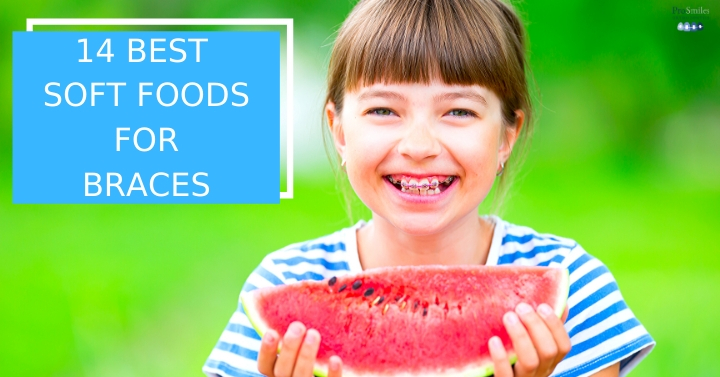
Proper hydration is essential when wearing a palate expander. It helps to keep the mouth moist and prevents dryness, which can lead to discomfort or irritation. Additionally, staying hydrated is important for overall health and well-being.
Importance of hydration
https://upload.wikimedia.org/wikipedia/commons/c/ca/1×1.png
When wearing a palate expander, it is crucial to drink an adequate amount of fluids throughout the day. Hydration helps to maintain the elasticity of the mouth tissues and promotes the proper functioning of the expander.
Furthermore, staying hydrated can help prevent complications such as mouth sores, bad breath, and discomfort caused by dryness. It also aids in the healing process if any irritation or inflammation occurs.
Recommended fluids
In addition to water, other suitable fluids include herbal teas, diluted fruit juices, and clear broths. These options provide hydration while also offering some flavor and variety.
Fluid intake tips
To ensure adequate hydration while wearing a palate expander, consider the following tips:
- Drink water throughout the day, aiming for at least 8 cups (64 ounces) or more.
- Carry a water bottle with you to have easy access to fluids.
- Sip on fluids regularly, rather than gulping them down all at once.
- Consider using a straw to drink fluids, as it may help bypass any discomfort caused by the palate expander.
Remember, maintaining proper hydration is crucial for your comfort and overall well-being while wearing a palate expander. Make sure to drink enough fluids and choose hydrating options that are beneficial for your oral health.

Dr. Fidel Cann: Esteemed orthodontist with a lifelong dedication to enhancing smiles and oral health. Pioneering expertise, compassionate care.
